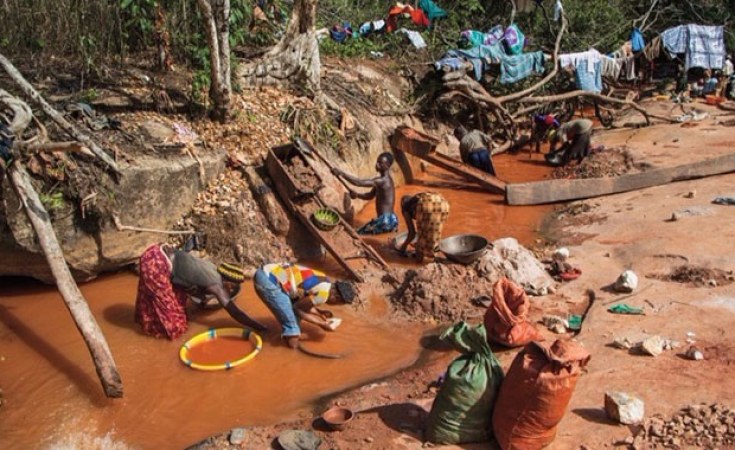Cape Town — Expanding gold mining in Zimbabwe is key to President Emmerson Mnangagwa's plans to revitalise the country's economy, especially at a time when the price of the metal is soaring on world markets.
But violence and turmoil are disrupting the sector and the government's centralised selling system is leading to lost tax revenue and foreign exchange.
Joining calls for reforms coming from within Zimbabwe is a new report published by the Brussels-based International Crisis Group (ICG), which summarises the challenges and outlines steps which the government, mining companies, civil society and international actors could take to meet them.
Issues highlighted by the report:
- Artisanal and small-scale miners who dig with little or no machinery and often without licences – and who produce 63 percent of reported gold production – are attacked and killed by armed "machete gangs" intent on taking over their diggings or simply robbing them.
- Ruling party politicians have been accused of backing illegally encroaching artisanal miners or even machete gangs. There is also tension between artisanal miners and the industrial mining companies that hold most exploration rights.
- Adding to the sector's woes, miners are forced to sell through a subsidiary of the country's central bank, which often pays late and at rates substantially below the world gold price. This encourages smuggling and it is estimated that more than $1.5 billion worth of gold leaves Zimbabwe illegally each year, often for Dubai.
Among the ICG's recommendations for action:
- The government should include give artisanal mining cooperatives legal standing, pay gold producers at world prices to reduce smuggling and strengthening mining dispute resolution mechanisms;
- Mining companies should cooperate with artisanal miners;
- Bodies representing artisanal miners should professionalised;
- Multiultilateral organisations such as the International Monetary Fund – and South Africa – should include metrics on mining when assessing Zimbabwe's reform efforts.


